SIU cheerleaders say they are being hidden during national anthem due to kneeling protests
Cheerleaders Ariahn Hunt, left, and Alaysia Brandy, center, kneel during the national anthem Saturday, Nov. 18, 2017, before the Salukis’ 69-64 win against the University of Illinois Springfield Prairie Stars at SIU Arena. (Brian Muñoz | @BrianMMunoz)
November 29, 2017
Ariahn Hunt says she was confused by what happened before a recent home volleyball game.
Hunt, a sophomore cheerleader from Chicago, said a change in protocol is now keeping the cheer team out of the public eye during the national anthem. The new rules were implemented at the Oct. 20 volleyball game against Illinois State University, she said.
“We were in the room next to the court where we always get ready and the doors were closed and you can’t hear anything,” Hunt said.
Advertisement
She said that the cheerleaders did not enter Davies Gym until after the anthem had played.
“I felt everybody looking when I walked in and I didn’t understand,” Hunt said.
The incident took place three weeks after Hunt and sophomore cheerleaders Czarina Tinker and Alaysia Brandy knelt in protest during the national anthem before a football game against Northern Iowa.
Athletics spokesperson Tom Weber said that cheerleading coach Kelsey Baden communicated to him that the team was held from the pregame ceremonies during two volleyball matches because they were late on arriving and did not hear the start of the matches.
Brandy disputed that the cheerleaders were late, saying they arrived at the Salukis’ volleyball matchup against Illinois State at least 30 minutes before the commencement of the game.
“We know that the protocol was officially put into place at basketball [but] we feel as though we were strategically not put out during the anthem at volleyball games,” Brandy said.
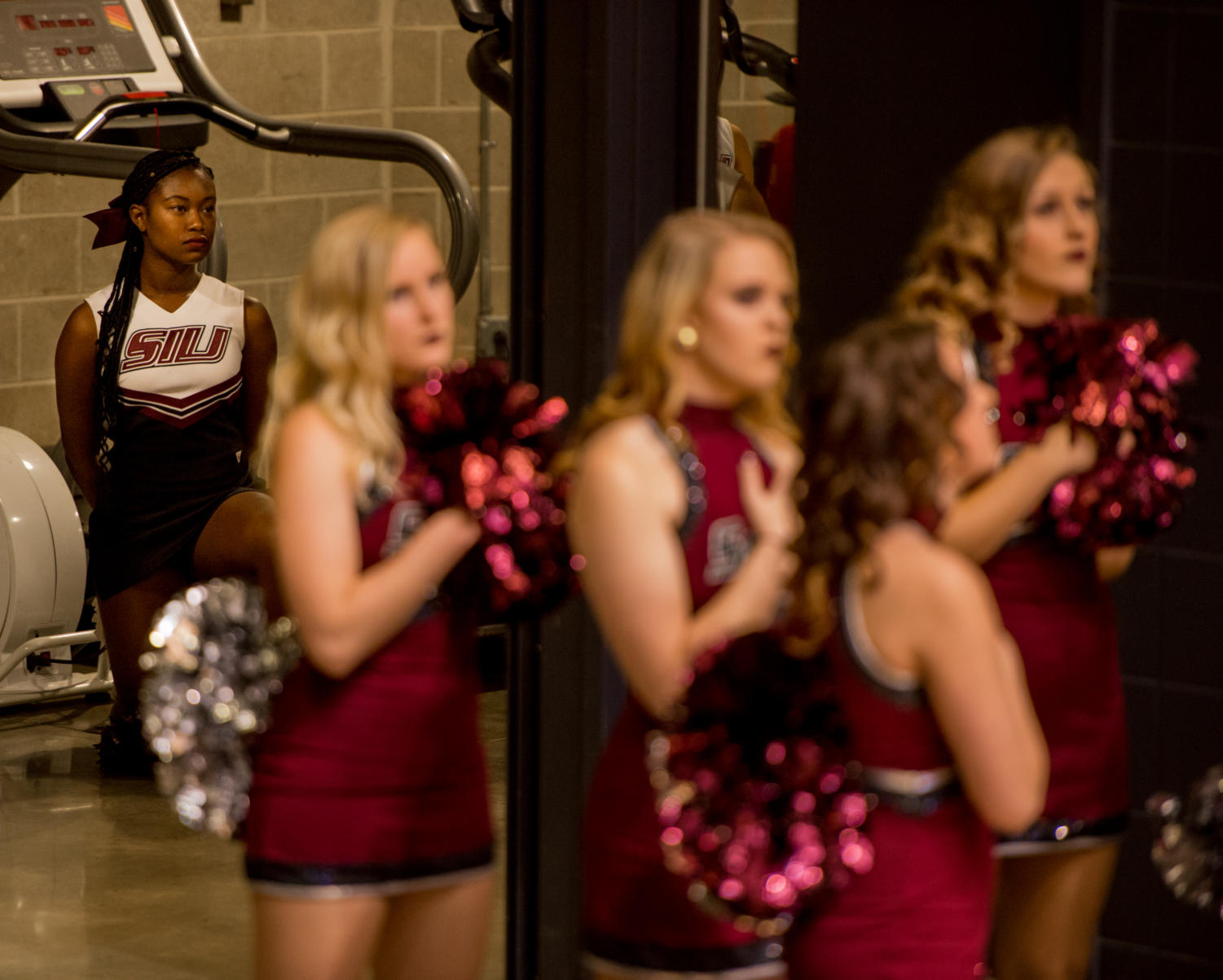
University spokeswoman Rae Goldsmith said the chancellor was not aware the cheerleaders were hidden or being put away during the national anthem.
Advertisement*
During a meeting on Nov.16 between Hunt, Tinker, Brandy and the chancellor, the cheerleaders said they raised concerns about being kept away from the public eye during the anthem.
Goldsmith said Chancellor Carlo Montemagno had approved a change in which all spirit teams would be stationed at the entrances of athletics facilities where they would greet customers and thank fans for attending games. When the cheerleaders raised concerns that the new protocol wasn’t being followed, Goldsmith said the chancellor addressed it and was not made aware of any additional problems.
Given the cheerleaders’ new concerns, Goldsmith said Montemagno would raise the issue with athletics and the chancellor’s office would then reach out to the cheerleaders to set up a meeting.
During the Saluki women’s basketball game against SIUE on Tuesday, the cheerleaders were placed in staging tunnels outside of the basketball court.
Weber said the cheerleaders were not intentionally put in that area, and it happened due to “a lack of execution” in implementing the new protocol.
“That’s not the correct procedure we’ve tried to implement, and maybe it’s a miscommunication between the coach and the team,” Weber said. “But we’re working with the coach in getting that corrected so that they’re not standing back there when the anthem is taking place.”
Kneeling during the anthem has become increasingly common at American athletic events since San Francisco 49’ers quarterback Colin Kaepernick knelt to protest against racial oppression in 2016.
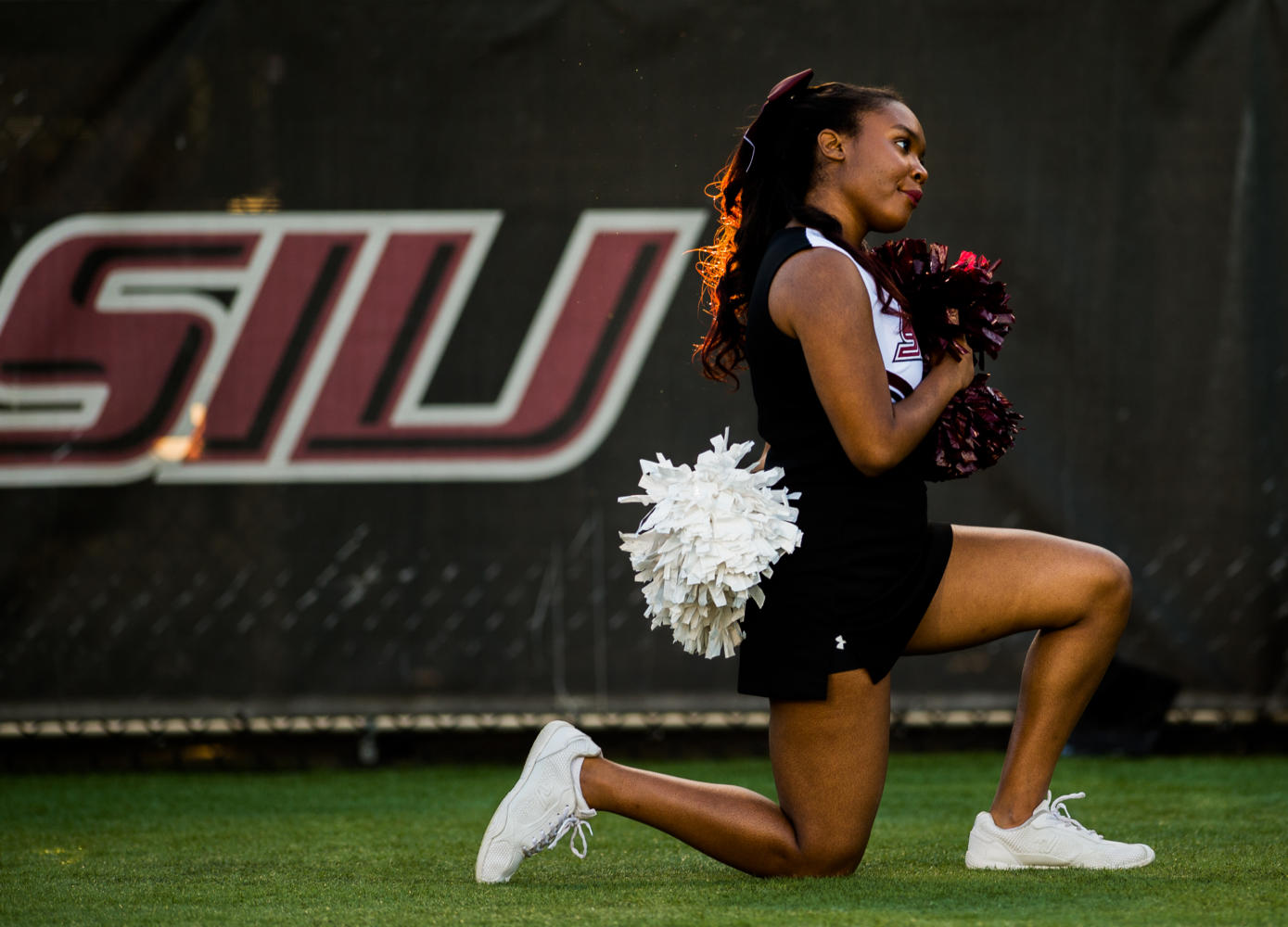
University athletics first said it was simply a change of protocol designed to enhance fans’ experience and that it was not implemented until Oct. 29, but the cheerleaders say they think they and the team have been targeted because some members of the team decided to kneel.
Weber said the same protocol had been used several times since January 2016. The Daily Egyptian asked several current and former cheerleaders for comment, but none responded to the requests.
Athletic Director Tommy Bell said the stationing of spirit teams at the entrances of games was recommended by a consultant to make arriving at games more of an event for fans.
“But only the cheerleaders were kicked outside of the stadium, and the mascots and the Shakers were still inside, which was direct targeting toward us,” Brandy said.
Bell said in a Nov. 20 email that spirit teams had greeted customers at the entrances in the past.
“Stationing them at the entrances to our athletic facilities is a natural extension of their role as goodwill ambassadors for Saluki Athletics,” he said.
Brandy said no fans were outside the arena during the time the cheerleaders were first stationed there hours before a basketball game and that Bell was there watching them.
Hunt echoed that sentiment, saying there is little or no fan interaction at the entrances, as they are there two or three hours before the game.
The cheerleaders also said they have yet to be stationed at the exits to thank fans after games.
“The only thing the protocol changed was where we were located during the national anthem, which is not what the protocol said at all,” Hunt said.
The cheerleaders said they asked their coach if Montemagno had asked to keep them from taking the court or field during the anthem, and their coach confirmed their suspicions.
“Yes. It’s all protocol changes that Tom Weber and Tommy Bell and the chancellor decided,” Baden said in a text message to three cheerleaders. “Tom Weber said if y’all would like to talk to him or Tommy their doors are open – but this was not my decision. It was all protocol changes that came from above me.”
By press time, Baden had not returned a phone call seeking comment.
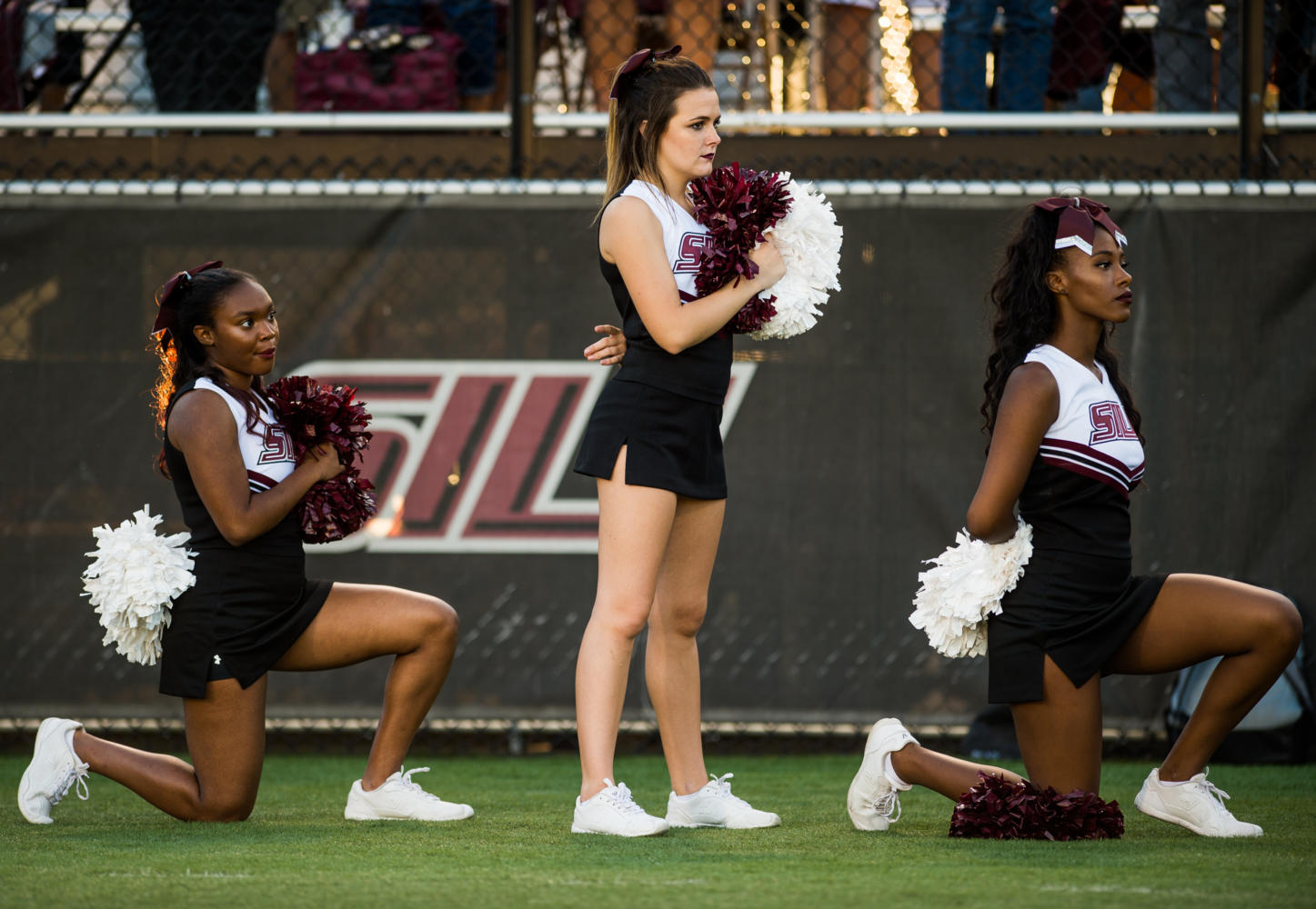
Montemagno released a statement after the Oct. 14 Homecoming football game saying he supported the cheerleaders’ right to protest.
“The two symbols that are the focus of these peaceful protests stand for one of our most important constitutional rights: freedom of speech,” he said. “We may not agree with how these students are choosing to make their statements, but we must morally and legally protect their right to make them.”
The cheerleaders said Montemagno met with them twice, and at a Nov. 16 meeting he spoke with them about a public forum on social and justice issues he wanted them to help put together.
“He wanted to talk to us about this forum that he wanted us to have,” Brandy said. “He said he was going to help us with it and that he would give us everything that we needed. We would just have to show up but it turns out that was a lie. We have to do everything on our own.”
Brandy said that they agreed to the open forum as long as they were able to keep their constitutional right to protest.
“He told us in the first meeting we had that he would not take that away from us in any way whatsoever, which he did with the new protocol,” Brandy said.
“He also sent us an email stating that it is against our constitutional First Amendment rights to put us outside of the stadium or during football games because we cannot hear the national anthem whatsoever to even continue to protest,” Brandy said. “He said that he would change that [protocol] to move us inside the stadium gates but not on the field – but we were still pushed outside of the stadium.”
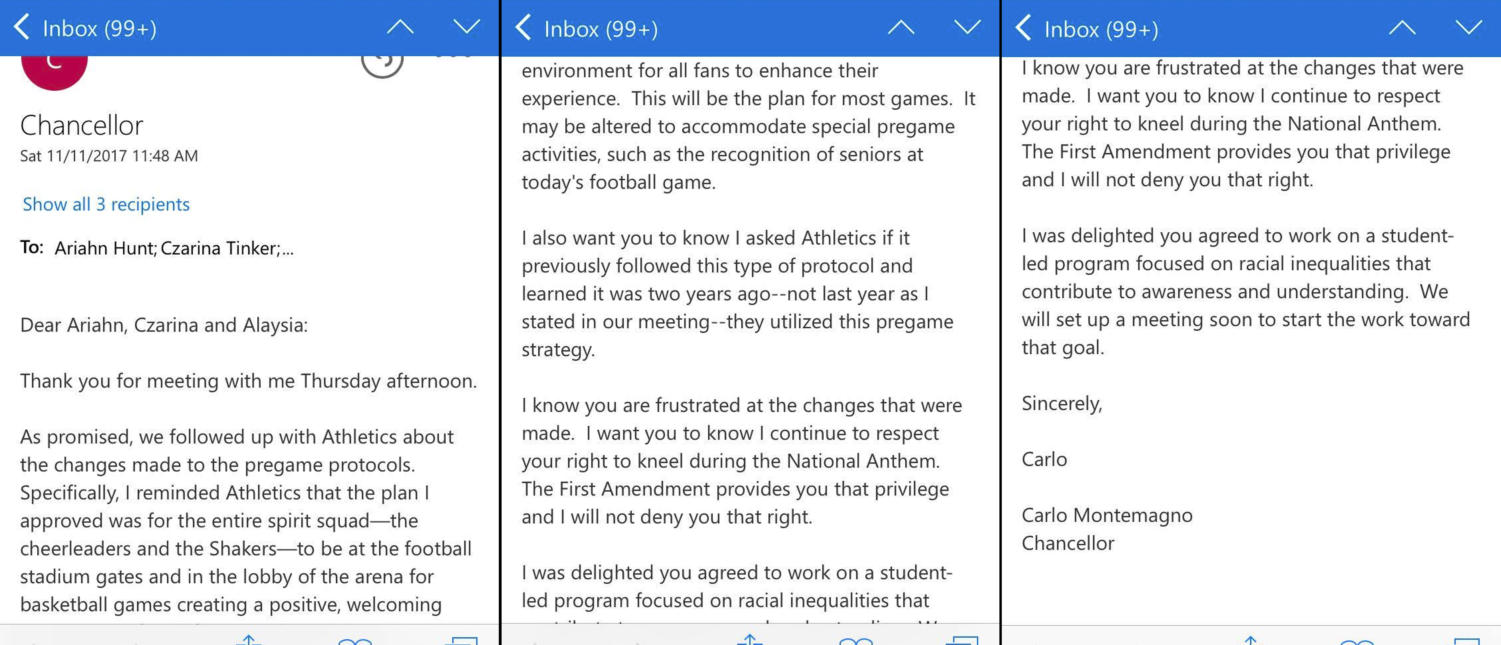
Goldsmith said the cheerleaders were still protesting during the national anthem and were not being denied their rights.
In the email Montemagno sent to the three cheerleaders on Nov. 11, he said he “reminded athletics that the plan [he] approved was for the entire spirit squad — cheerleaders and the Shakers— to be at the football stadium gates and in the lobby of the arena for basketball games creating a positive, welcoming environment for all fans to enhance their experience.”
While the cheerleaders said they have received positive feedback from all over the world, they have also experienced negativity.
They also received backlash from fans near the sidelines during the Homecoming football game on Oct. 14 against Illinois State. One particular fan —a member of the Gridiron Club — yelled at the girls to stand up during the anthem.
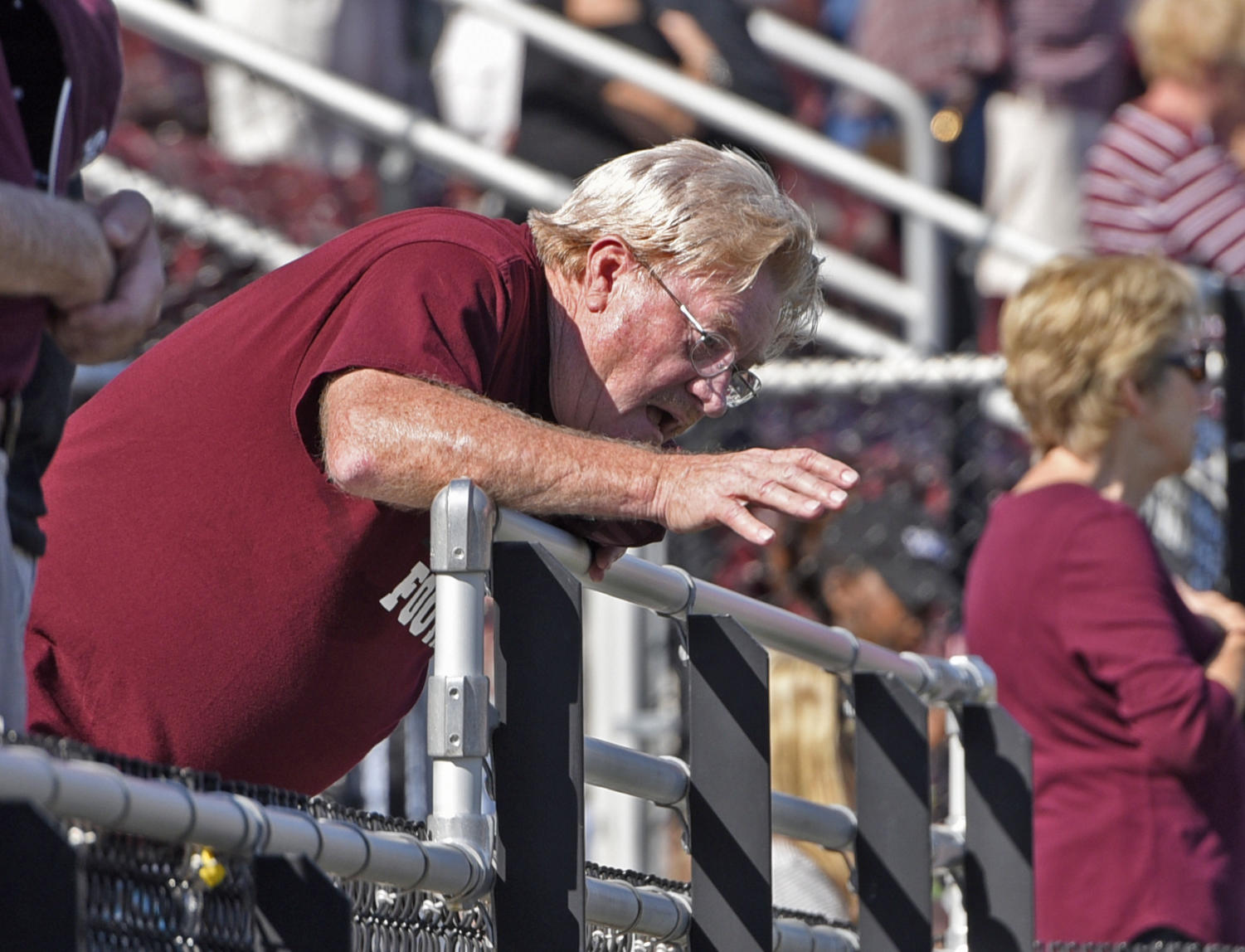
Club members are allowed on the field, and the fan stood there for the game on Nov. 4, which the cheerleaders said made them feel uncomfortable and distraught because he was staring at them.
“My understanding is there was one person, I don’t know him personally, but I do know that he is a member of our Gridiron Club, which means he has access to the field,” Weber said. “Again, when he is on the field, when anyone is on the field, we have close police right there next to our cheerleaders, we have athletic administrator staff there.”
At the Military Appreciation football game on Nov. 11, the cheerleaders were not permitted to enter Saluki Stadium for the pregame ceremonies, including the national anthem.
While performing a stunt, Tinker sustained an injury and was carried out of the stadium. An unidentified SIU football player yelled that it was “karma” upon her departure, as another fan yelled, “You kneel, you suck,” the three cheerleaders said.
Weber said the cheerleaders did not report any issues on the sidelines, nor did any of the staff see any issues.
The three cheerleaders also received threats on social media following their initial protest, they said.
“The negative people are so quick to comment and let us know how they feel,” Brandy said.
Brandy and Hunt said they hope to educate others on the topic of racial and social injustice in the United States.
“The fact that they are trying to silence us just shows that they really don’t care about what we are fighting for,” Brandy said. “If you think about it, trying to silence people by speaking out about the murders and injustice in this country is just facilitation, you are part of the problem. The fact is just that they don’t care and it’s so baffling, and it makes it more reason to keep going.”
Photography and multimedia editor Brian Muñoz can be reached at [email protected] or on Twitter at @BrianMMunoz.
Sports editor Nathan Dodd contributed to this story and can be reached at [email protected] or on Twitter at @NathanMDodd.
To stay up to date with all your SIU news, follow the Daily Egyptian on Facebook and Twitter.
Advertisement



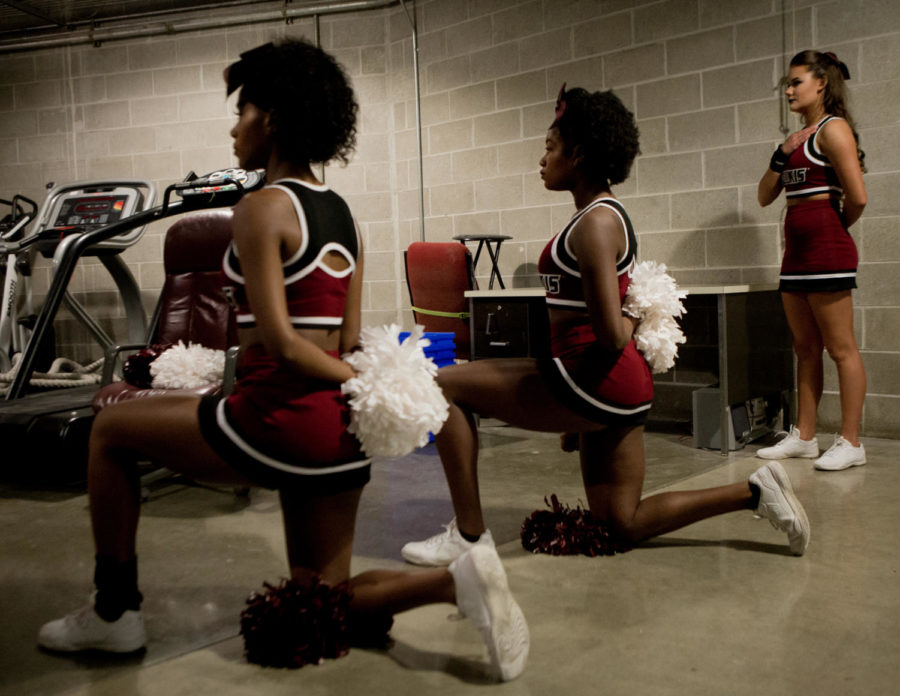


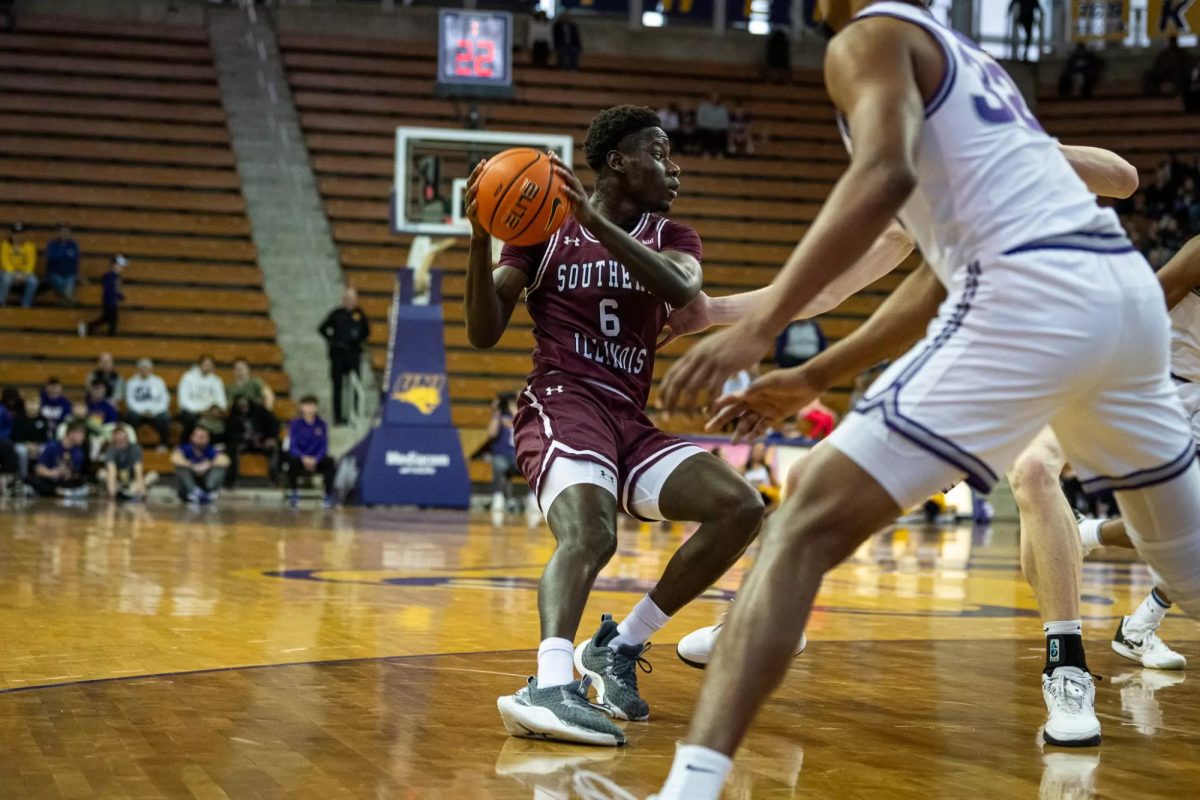


Michael Smith • Nov 30, 2017 at 4:12 pm
I’m appalled. I would hope that by the time one reaches college, on would have paid enough attention to their education to know that the only protection of freedom of speech guaranteed under the 1st Amendment involves government censorship. Since the government isn’t involved, no one has had their freedom of speech violated.